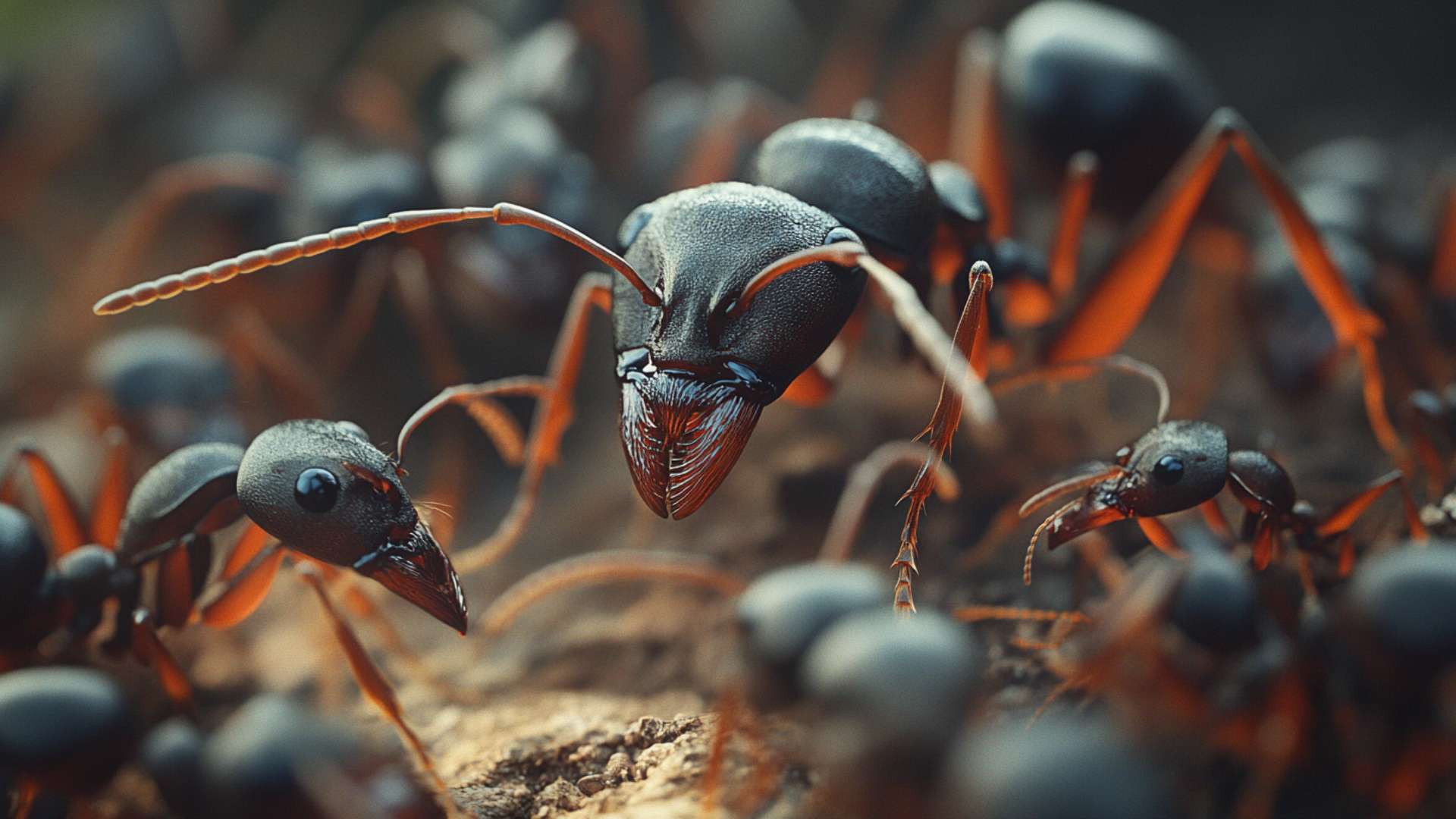Ants, those tiny creatures that often invade our homes and picnic areas, are not just ordinary pests. They constitute complex colonies of tiny insects with a well-defined social structure. Ant colonies can range in size from a few hundred to millions of individuals, depending on the species.
Each colony is led by a queen whose primary role is reproduction. Worker ants, which make up the majority of ants that frequent the colony, are responsible for tasks such as foraging for food, caring for the young, and constructing intricate tunnels and chambers within their nests.
Explanation of Ants’ Reliance on Chemical Signals for Communication
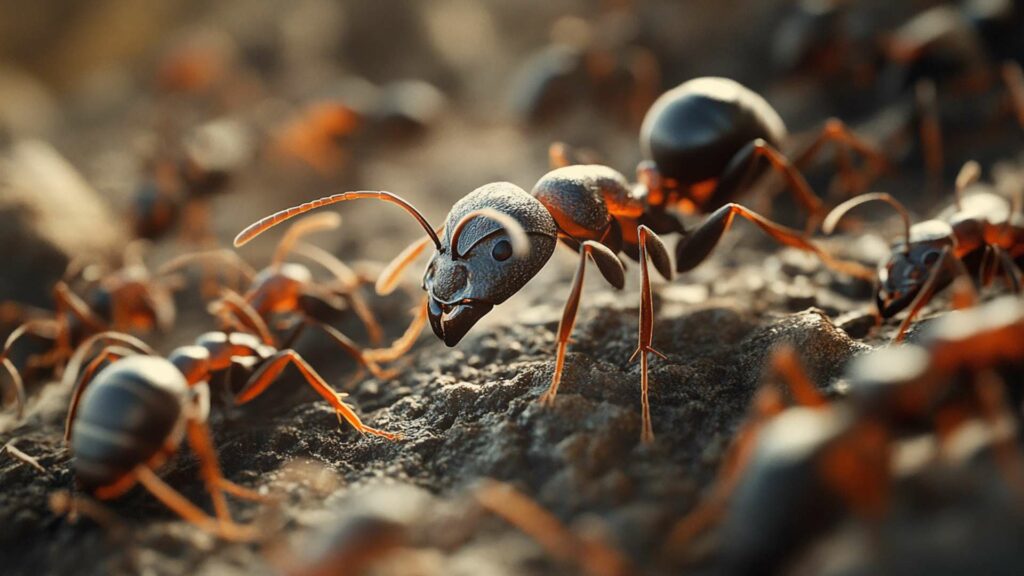
One fascinating aspect of ant behavior is their significant reliance on chemical signals known as pheromones to communicate with one another effectively. Pheromones are special chemicals released by ants to transmit messages about various situations like food sources, danger signals, or marking territorial boundaries.
These chemical signals allow ants to coordinate their actions seamlessly within the colony. Ants possess highly developed olfactory receptors that enable them to detect even minute traces of these pheromones over long distances.
This heightened sensitivity makes scent an essential aspect of their daily lives. By following the scent trail or trails left by worker ants or detecting particular smells associated with specific activities or threats, they can navigate through their environment efficiently.
When it comes to understanding how certain smells affect ants’ behavior, it’s important to note that different ant species may exhibit varying responses due to differences in preferences and sensitivities. However, there are some common smells that many ants dislike or find repellent.
To rid your surroundings of odorous house ants or other unwanted ant visitors, you can take advantage of nature’s pantry by utilizing common household items that possess strong odors which repel these critters. For instance, sprinkling coffee grounds around problem areas or along ant trails can help deter their movement.
The intense smell of coffee interferes with their ability to navigate using scent trails, making them less likely to venture further into your space. Additionally, black pepper is known to repel ants due to its pungent aroma.
Simply sprinkle a few pinches of black pepper near entry points or areas where you’ve spotted ants, and they’ll likely change their course. Another option is citrus peels, which release a strong smell that ants find displeasing.
Placing citrus peels near ant-infested areas can discourage their presence and redirect them elsewhere. Understanding ant behavior and their sensitivity to smell is crucial in effectively deterring these tiny invaders from our homes and outdoor spaces.
By comprehending the complex social structure of ant colonies and the vital role chemical signals play in their communication, we gain insights into using scent-based ant repellents as a natural means of control. In the following sections, we will explore more smells that ants hate most, and delve into the science behind why certain scents disrupt their activities.
Common smells that ants dislike
Strong odors from household items
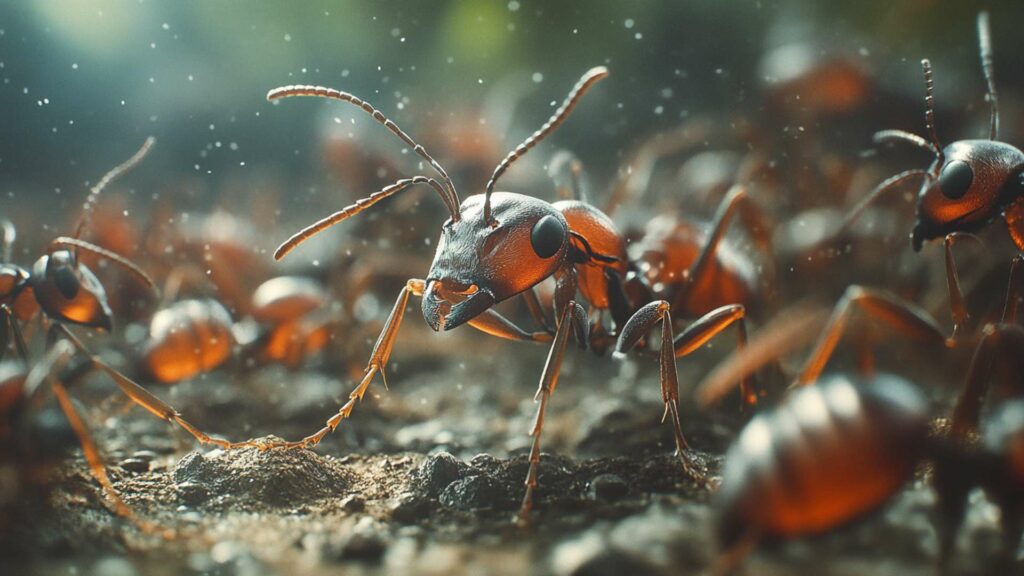
When it comes to deterring ants, there are several strong odors from common household items that can work wonders. One of the most effective scents to attract ants is citrus. The refreshing aroma of lemon, orange, or grapefruit can turn ants away from their intended path.
These fruits contain a compound called d-limonene, which is known to repel ants and many other insects. Simply squeeze some citrus juice or rub the peels near entry points or areas where ants are present.
Another smell that ants despise is the minty freshness of the peppermint oil and spearmint oils. The strong presence of menthol in these oils acts as a powerful deterrent for those pesky creatures.
You can create your own natural insect repellent spray by mixing a few drops of these oils with water and spraying it in areas where you want to keep ants at bay. Vinegar and ammonia-based cleaners are two more household items that emit strong smells disliked by ants.
The pungent acetic acid in vinegar disrupts their scent trails, confusing them and making it harder for them to navigate. Similarly, the harsh smell of ammonia sends out warning signals to the tiny invaders, urging them to retreat.
Natural repellents derived from plants
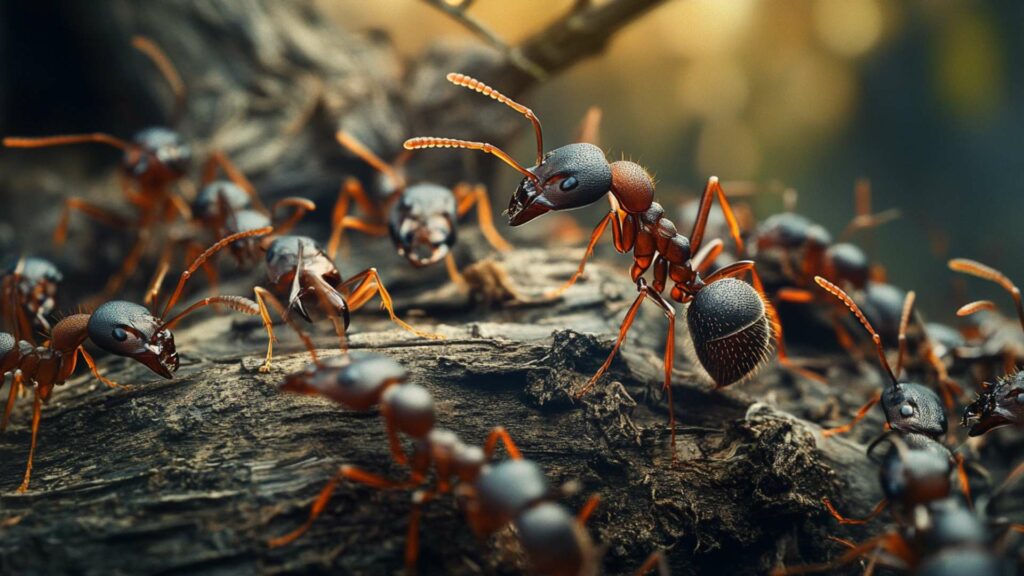
If you prefer natural solutions, there are various plant-derived ant repellents available as well. Essential oils have proven particularly effective in warding off these persistent pests. Eucalyptus and cinnamon essential oil also contains chemicals like cineole and eucalyptol which not only deter ants but also kill them upon contact due to their toxic properties.
Tea tree oil is another potent ant deterrent with its distinct medicinal scent. This essential oil contains terpenes such as terpinene-4-ol that have been found to effectively repel multiple insects including ants.
Additionally, herbs and spices like cinnamon, cloves, and bay leaves can work wonders in keeping ants away. The strong aroma of ground cinnamon disrupts ants’ pheromone trails, preventing them from finding food sources.
Cloves contain a compound called eugenol that repels ants and other insects. Bay leaves release a natural oil that repels ants while also acting as a natural insecticide.
Don’t forget the power of fresh herbs to kill ants! The strong scent of mint or basil can deter ants effectively.
Planting lavender near entry points or areas prone to ant activity can also help create an ant-free environment, as ants are not fond of its fragrance. By utilizing these common household items and natural plant-derived repellents, you can create an unfavorable environment for those persistent pests known as ants.
Remember to experiment with different scents to find what works best for your specific situation. With these simple remedies, you’ll be well on your way to deterring those unwelcome visitors and keeping your home ant-free!
Unusual Smells That Ants Hate
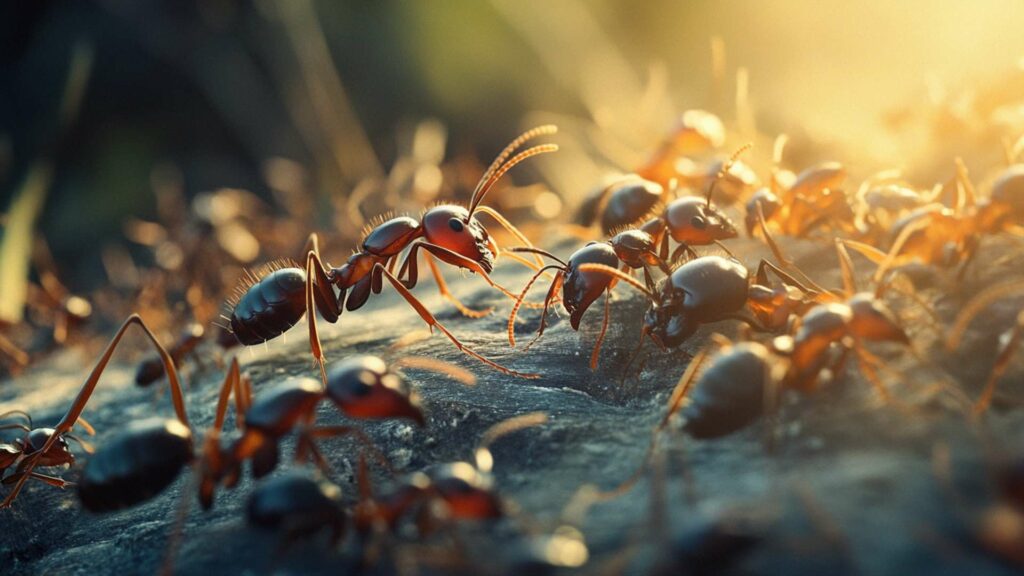
Unique natural substances with repelling properties
When it comes to deterring ants, there are some unconventional smells that can work wonders. These unique natural substances have repelling properties that make ants steer clear of them. Let’s explore a few of these unusual smells and how they can help you keep those pesky ants away.
Coffee grounds or used coffee filters
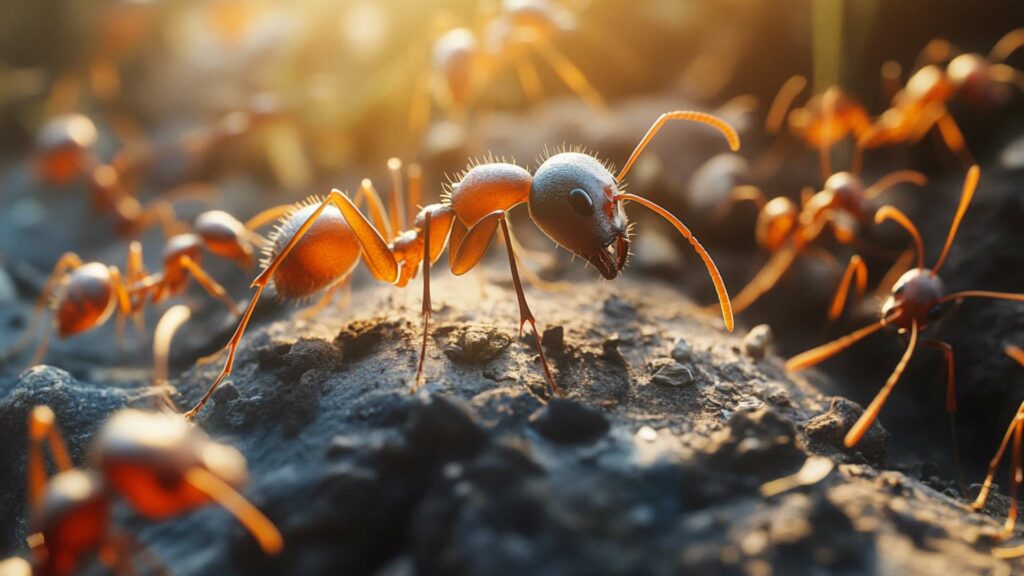
If you’re an avid coffee drinker, you’ll be delighted to know that your morning pick-me-up can also help get rid of ants. The strong smell of coffee grounds or used coffee filters is highly disliked by these tiny creatures.
Sprinkle some coffee grounds around the areas where you often spot ants trailing, such as kitchen countertops or near doorways. Not only will this repel ants, but it also acts as an effective insect repellent for other pests.
Chalk dust or powdered charcoal
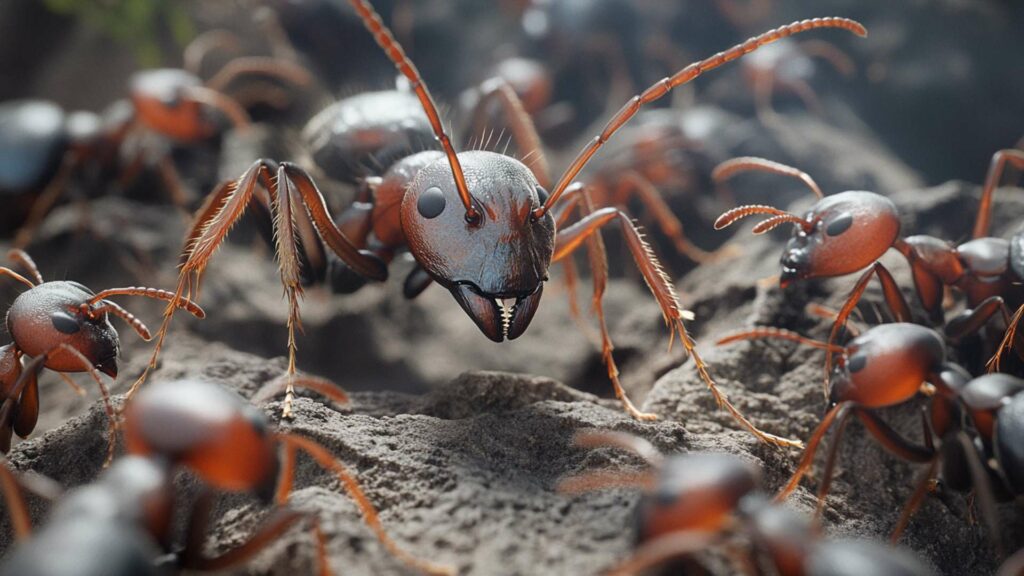
Chalk dust may seem like a surprising ant deterrent, but it has been known to work effectively. Ants avoid crossing lines made with chalk due to the calcium carbonate present in it.
Simply draw a thick line around entry points or areas where ants are frequently seen using chalk sticks, and watch them change their path! Similarly, powdered charcoal can have a similar effect on deterring ants and disrupt their trails.
Crushed garlic cloves or onion peels
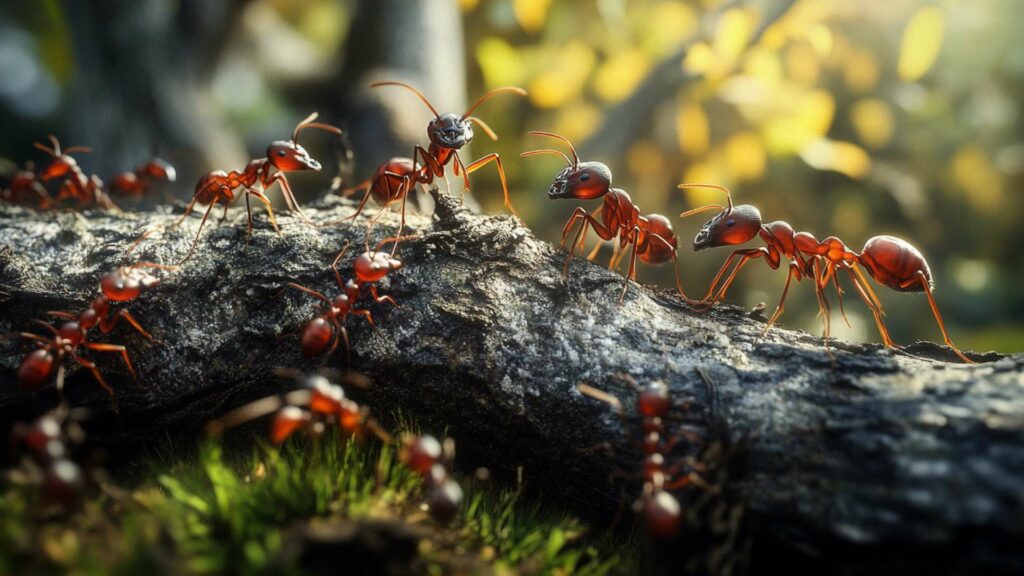
The pungent aroma of crushed garlic cloves or onion peels not only adds flavor to your meals but also acts as an excellent ant repellent. Grind some garlic cloves into a paste and place it near ant entry points or infested areas.
Alternatively, scatter onion peels across common ant routes to deter them from invading your space. The intense smell of these kitchen staples is highly disliked by ants and will discourage them from venturing further.
Lesser-known deterrents found in specific locations/cultures
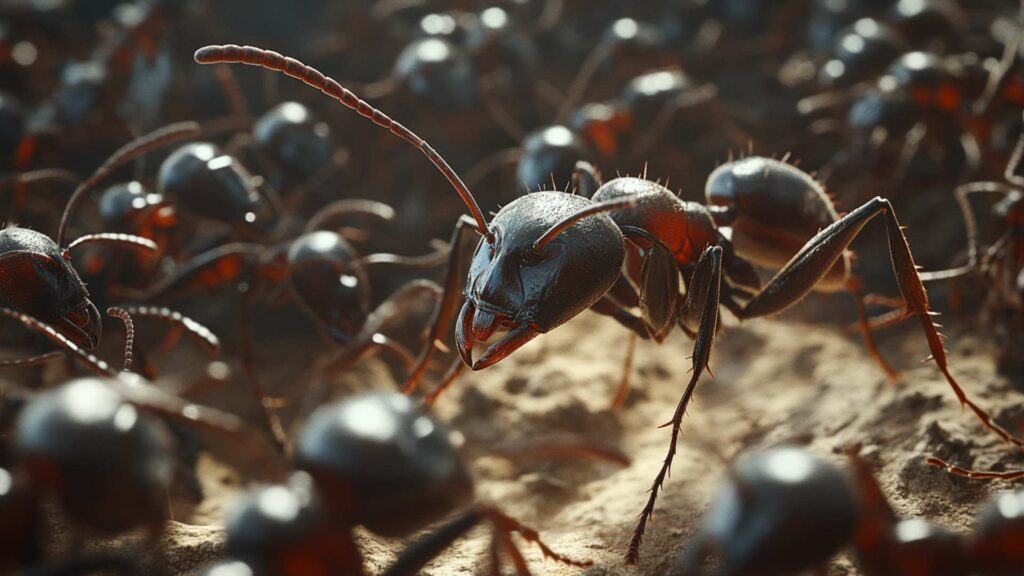
Apart from the more commonly known ant repellents, there are some lesser-known ones that are widely used in certain regions. These unique deterrents have been passed down through generations and have proven to be effective against ants.
In Southeast Asia, betel leaves are known for their ant-repelling properties. Placing betel leaves strategically around your house or garden can help keep ants away.
Similarly, in Indian households, neem oil is a popular choice for deterring ants and other insects. The strong smell of neem oil acts as a natural repellent and disrupts ants’ pheromone trails.
In European gardens, Tansy flowers are often planted to repel insects, including ants. The flowers contain chemical compounds that emit an intense smell disliked by many insects, making them an excellent natural deterrent against ants.
By utilizing these unusual smells that ants hate the smell of, you can create a powerful defense against these pesky invaders. Whether it’s coffee grounds or onion peels in your kitchen or cultural remedies like betel leaves or neem oil, exploring unconventional options can help you effectively keep those unwanted guests away from your home.
The Science Behind Ant Aversion to Certain Smells
Unveiling the Secrets of Ant Olfactory Receptors
Ants have an extraordinary sense of smell, thanks to their sophisticated olfactory receptors. These tiny creatures possess specialized antennae covered in tiny hairs that are highly sensitive to chemical compounds in their environment.
When an ant encounters a particular scent, these receptors detect and transmit the information to its brain for interpretation. The olfactory system of ants is so finely tuned that they can detect even trace amounts of certain odors, which aids them in identifying food sources and communicating with their fellow colony members.
One remarkable feature of ants’ olfactory receptors is their ability to distinguish between different scents. They can identify and respond differently to various chemical compounds present in smells.
For instance, certain smells may be perceived as threats or danger signals, while others might be interpreted as food sources or territorial markers. This selective response allows ants to navigate their environment effectively and communicate through scent trails.
The Disruption of Pheromone Trails: Cracking the Scent Code

Pheromones play a crucial role in ant communication by marking trails for foraging or guiding other members towards food sources or nest locations. However, specific scents can disrupt these pheromone trails, leading ants astray or deterring them altogether.
By understanding this fascinating phenomenon, we can harness it to our advantage in deterring ants from unwanted areas. Certain smells interfere with the chemicals present in pheromones, causing confusion among ants attempting to follow established scent trails.
For instance, substances like citrus peel or lemon eucalyptus oil contain compounds that mask the pheromone cues left by ants and make it difficult for them to navigate accurately. As a result, they may become disoriented or lose interest in pursuing a path if they encounter these disruptive scents.
The disruption of pheromone scent trails is not limited to specific ant species or smells. Various studies have shown that a range of scents can interfere with ants’ ability to communicate effectively.
For the ants feed for instance, cinnamon oil or ground cinnamon has been found to deter ants by disrupting their pheromone trails. Similarly, the pungent aroma of cayenne pepper can also confuse ants and discourage them from accessing certain areas.
Understanding the science behind ant aversion to certain smells empowers us to utilize this knowledge in our efforts to repel these tiny intruders effectively. By strategically employing scents that disrupt their communication and navigation systems, we can create barriers and discourage ants from venturing into our desired spaces.
Tips for using smell as an effective ant repellent
Proper application methods for different smells (sprays, sachets, etc.)

When it comes to utilizing smells that ants hate to keep them at bay, there are various application methods you can employ. One effective approach is creating your own natural ant spray by diluting essential oils or vinegar with water in a spray bottle. For instance, you can mix equal parts of water and lemon eucalyptus oil or vinegar and spray it along ant trails or entry points into your home. Remember to shake the bottle before use to ensure the ingredients are well combined. Another way to utilize smells that ants dislike is by making sachets filled with dried herbs or spices. Fill small cotton pouches with crushed mint leaves, cinnamon sticks, or cloves and place them near areas where ants tend to congregate, such as windowsills or kitchen cabinets. The strong scents emitted from these sachets will deter ants from approaching those areas.
Suggestions for strategic placement to deter ants effectively
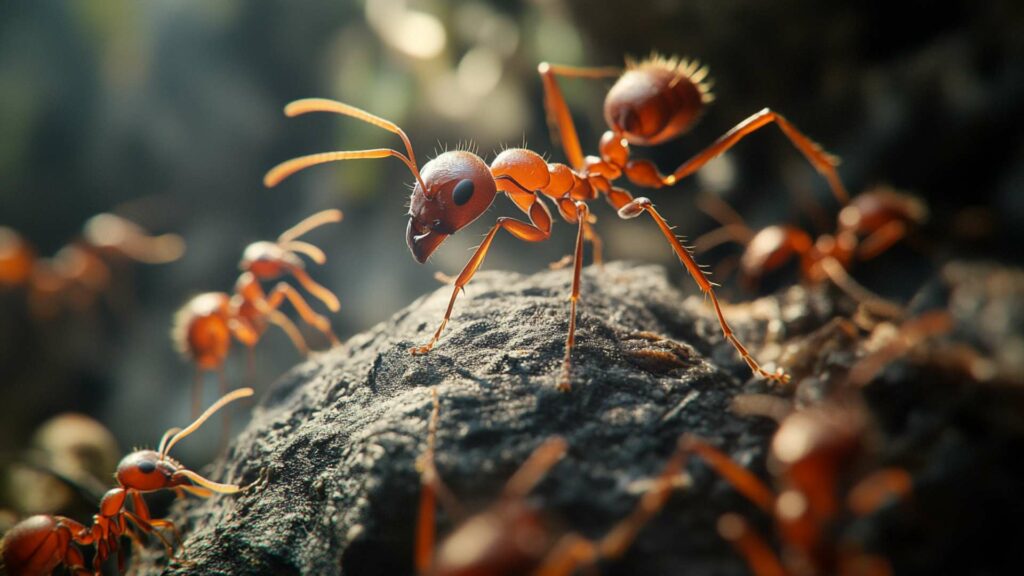
To effectively deter ants using smell, strategic placement of repellents is crucial. Identifying key entry points and areas where ants often gather will help guide your placement decisions. For example, if you’re dealing with pavement ants entering through cracks in your floor or walls, focus on applying the repellents around those openings. Spray the ant-repelling solution along the cracks or soak cotton balls in it and place them directly over the entrances. If carpenter ants are causing trouble by targeting wooden structures in your home, concentrate on treating those areas specifically. Apply a mixture of equal parts laundry detergent and warm water onto affected wood surfaces using a sponge or cloth soaked in the solution. Remember that many insects dislike strong scents like lemongrass essential oil. You can create an effective barrier against these unwelcome guests by mixing a few drops of lemongrass essential oil with water and rubbing it onto window frames, door thresholds, and cracks in the walls. By using proper application methods and strategically placing ant-repelling scents, you can greatly reduce the presence of ants in your home. Remember to reapply or refresh the repellents periodically for long-lasting effectiveness. With these tips, you’ll be well on your way to creating an environment that smells delightful to you but repels those pesky ants!
Conclusion
A World of Possibilities to Keep Ants at Bay
Throughout this exploration of the smells that ants detest, we’ve discovered an array of natural and household remedies that can effectively repel these tiny invaders. By harnessing the power of scents, we can create a formidable barrier against ant infestations, protecting our homes and gardens without resorting to harmful chemicals or excessive measures. Whether it’s the delightful aroma of citrus, the refreshing essence of mint, or even the pungent strength of garlic or coffee grounds, there exists a world of possibilities to keep ants at bay.
Embracing Natural Solutions for Peaceful Coexistence
In our quest to deter ants through olfactory means, we have not only uncovered a variety of effective solutions but also embraced a more sustainable approach towards pest control. By harnessing the natural properties of essential oils, herbs, and spices, we can create safe and eco-friendly barriers that not only repel insects but also provide additional benefits like aromatherapy or culinary uses. This harmonious coexistence with nature allows us to protect our surroundings while still enjoying the pleasures they offer.
A Future Without Ant Worries
As we bid farewell to this journey into ant-deterring scents, let us remember that maintaining cleanliness and addressing potential entry points are crucial steps in preventing ant invasions. By combining these proactive measures with our newfound knowledge about smells that ants hate, we can create an environment where ants are discouraged from establishing scent trails into our living spaces. With a little persistence and experimentation with different repellents, we can look ahead to an ant-free future where our homes remain sanctuaries untouched by their miniature presence.
While tiny ants may seem like insignificant nuisances as they scurry across our countertops, food, crumbs, or invade pet food bowls through odorous house ant trails, we possess the power to deter and turn ants away without resorting to harmful chemicals. By utilizing the strong smells that ants despise, we can disrupt their scent trails and make our homes unattractive to them.
Through a natural way of deterring and killing ants ourselves, using ingredients like essential oils, herbs, spices, or even common household items like coffee grounds or chalk dust, we can reclaim our spaces from these persistent little creatures. So let us embrace these simple yet effective strategies and welcome a future where ants are kept at bay in an eco-friendly manner.
Dissuade Ants with D-Termination: Las Vegas’ Leading Pest Control Service!

If you’re contending with ant challenges, D-Termination is ready to help. Our experienced team excels at discouraging ants, rejuvenating cleanliness, and preserving the integrity of your surroundings. Bid farewell to ants—opt for D-Termination for effective pest control today!
Get in touch with us at 702-919-6310 or visit dtermination.com to schedule your ant control service and regain your space from these unwanted pests.
Frequently Asked Questions:
Scents like vinegar, citrus, and essential oils can deter ants.
Ants naturally dislike strong-smelling substances like peppermint, cinnamon, and vinegar.
Ants will avoid crossing barriers made of substances they find unpleasant.
Among ants’ natural enemies, some types of birds and other insect predators pose significant threats.

